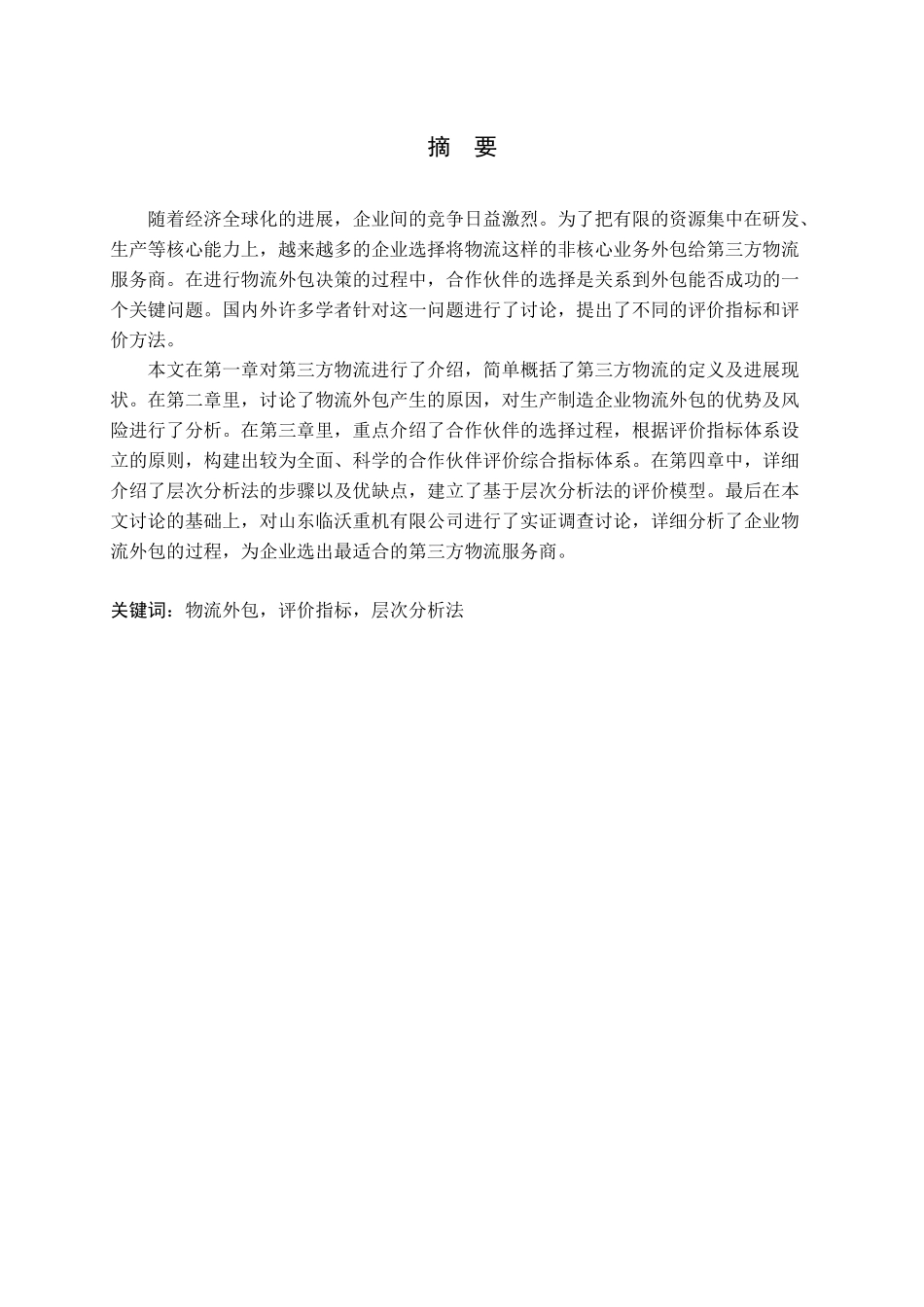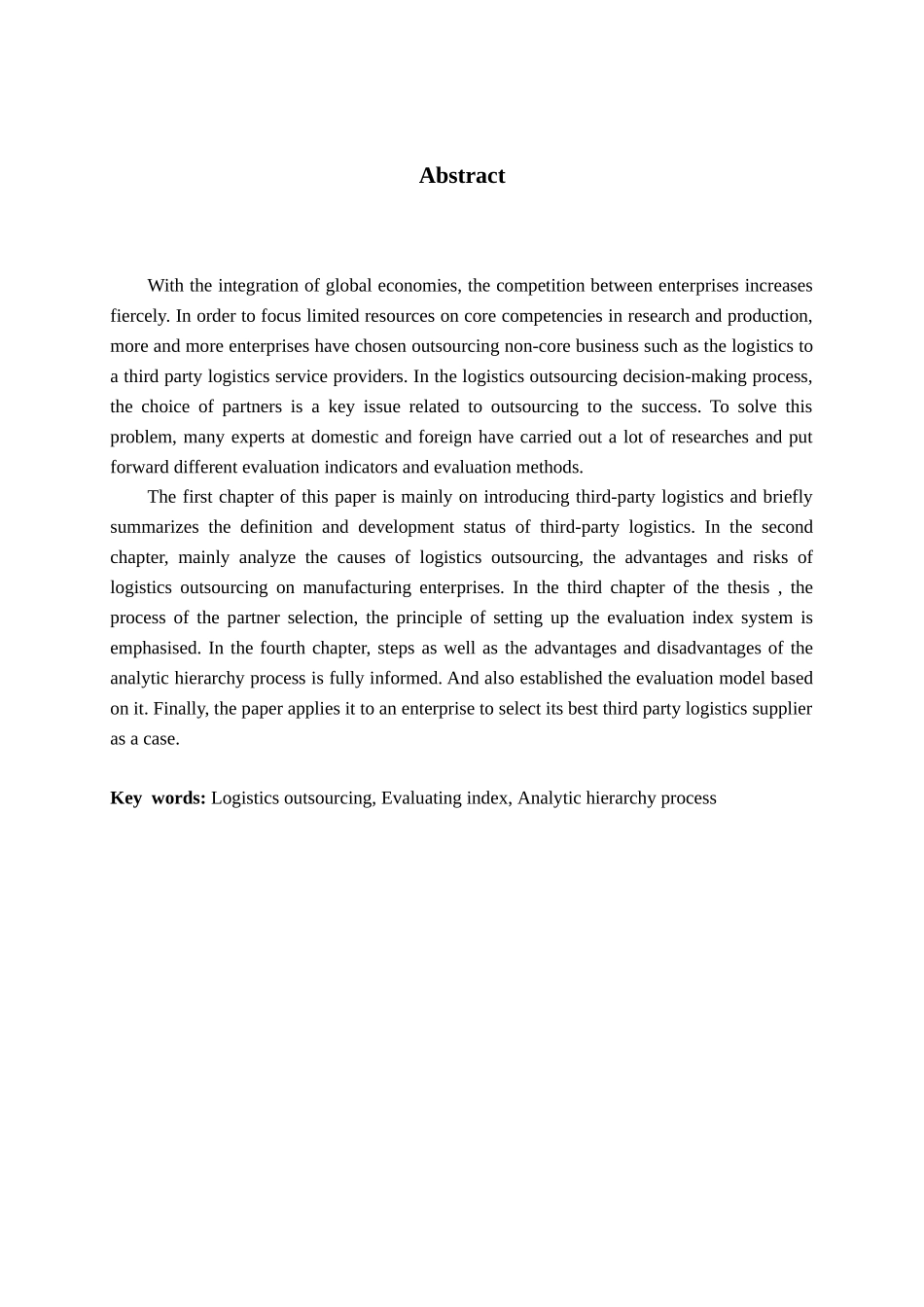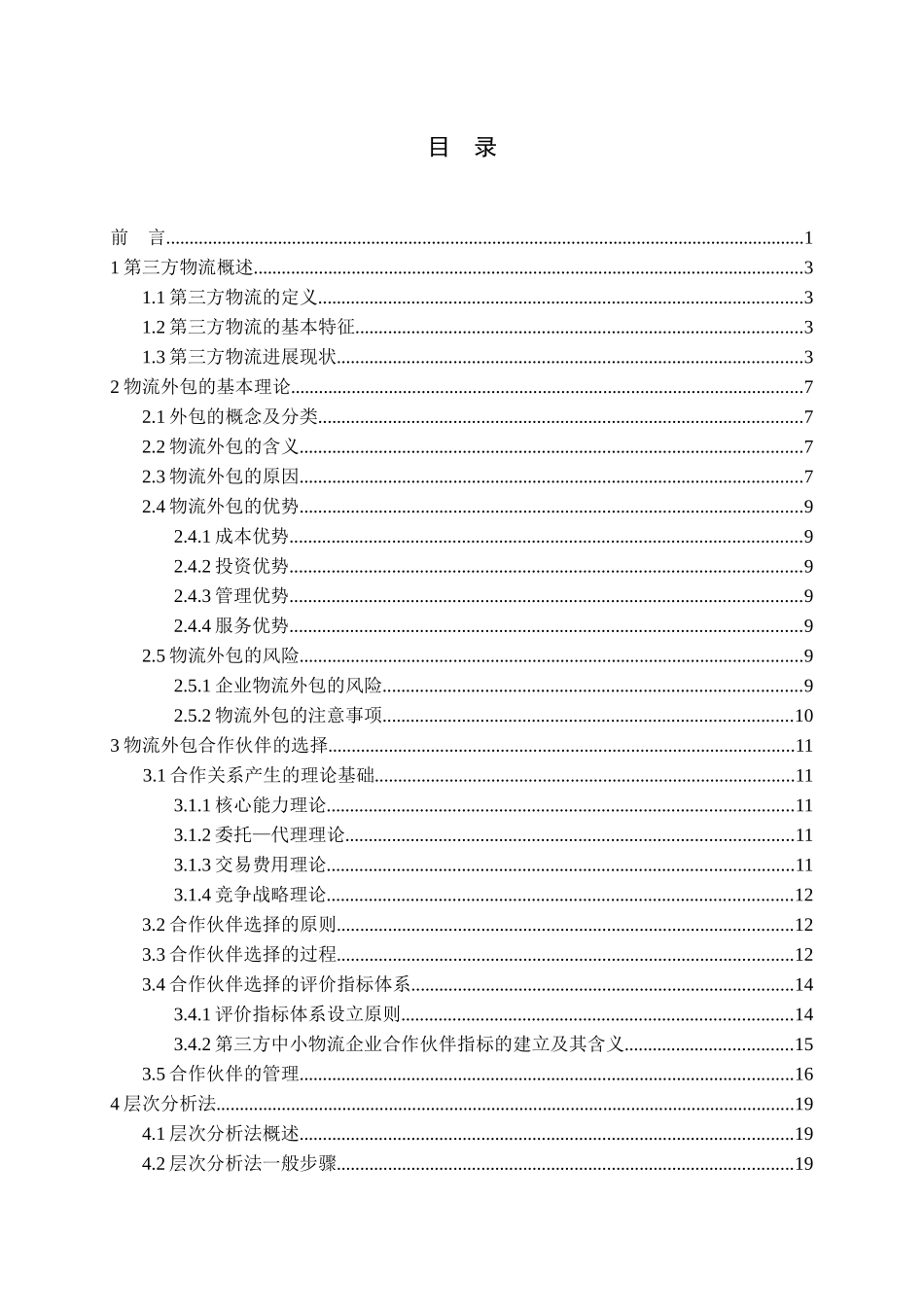摘 要随着经济全球化的进展,企业间的竞争日益激烈。为了把有限的资源集中在研发、生产等核心能力上,越来越多的企业选择将物流这样的非核心业务外包给第三方物流服务商。在进行物流外包决策的过程中,合作伙伴的选择是关系到外包能否成功的一个关键问题。国内外许多学者针对这一问题进行了讨论,提出了不同的评价指标和评价方法。本文在第一章对第三方物流进行了介绍,简单概括了第三方物流的定义及进展现状。在第二章里,讨论了物流外包产生的原因,对生产制造企业物流外包的优势及风险进行了分析。在第三章里,重点介绍了合作伙伴的选择过程,根据评价指标体系设立的原则,构建出较为全面、科学的合作伙伴评价综合指标体系。在第四章中,详细介绍了层次分析法的步骤以及优缺点,建立了基于层次分析法的评价模型。最后在本文讨论的基础上,对山东临沃重机有限公司进行了实证调查讨论,详细分析了企业物流外包的过程,为企业选出最适合的第三方物流服务商。 关键词:物流外包,评价指标,层次分析法AbstractWith the integration of global economies, the competition between enterprises increases fiercely. In order to focus limited resources on core competencies in research and production, more and more enterprises have chosen outsourcing non-core business such as the logistics to a third party logistics service providers. In the logistics outsourcing decision-making process, the choice of partners is a key issue related to outsourcing to the success. To solve this problem, many experts at domestic and foreign have carried out a lot of researches and put forward different evaluation indicators and evaluation methods.The first chapter of this paper is mainly on introducing third-party logistics and briefly summarizes the definition and development status of third-party logistics. In the second chapter, mainly analyze the causes of logistics outsourcing, the advantages and risks of logistics outsourcing on manufacturing enterprises. In the third chapter of the thesis , the process of the partner s...


